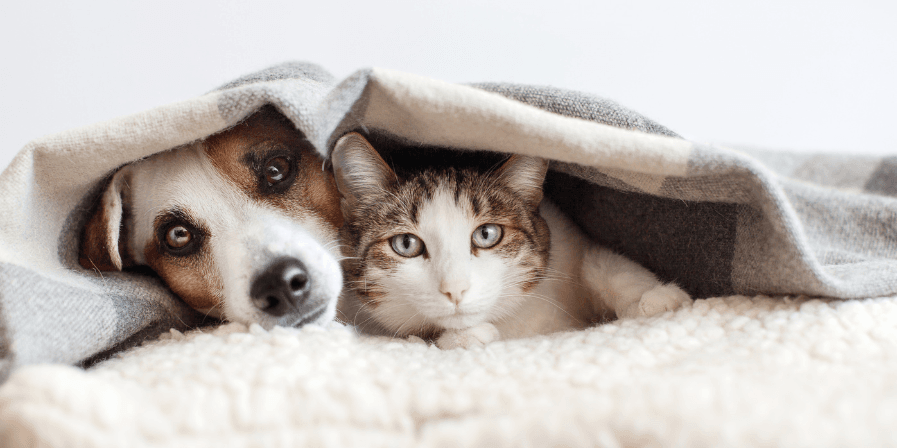Winter Weight Gain of Your Pets

As winter approaches, many pet owners notice their furry companions gaining weight. This seasonal weight gain is common among pets and can be attributed to several factors, including reduced physical activity, increased caloric intake, and metabolic changes. Understanding these factors and implementing effective strategies can help maintain your pet's health during the colder months.
Causes of Winter Weight Gain in Pets
One primary cause of winter weight gain in pets is reduced physical activity. Colder temperatures and shorter daylight hours often lead to decreased outdoor exercise, resulting in a more sedentary lifestyle. Pets that are accustomed to regular walks or playtime may become less active, leading to fewer calories burned and subsequent weight gain.
Increased caloric intake during winter also contributes to weight gain. Pet owners may offer more treats or larger meal portions, especially during the holiday season. Additionally, pets may have a natural inclination to eat more as a survival instinct, preparing for scarcer resources, even though food availability remains constant in domestic settings.
Metabolic changes can further influence weight gain. Some pets experience a natural slowdown in metabolism during colder months, conserving energy and promoting fat storage. This physiological response, while beneficial in the wild, can lead to unwanted weight gain in domestic pets.
Health Risks Associated with Weight Gain
Excess weight in pets can lead to several health issues. Joint problems are common, as additional weight places extra stress on joints, potentially leading to arthritis or exacerbating existing joint conditions. Overweight pets are also at a higher risk of developing diabetes due to increased insulin resistance. Furthermore, excess weight can strain the cardiovascular system, increasing the risk of heart-related issues.
Preventing Winter Weight Gain
To prevent winter weight gain, maintaining regular exercise is crucial. Ensure your pet continues to receive physical activity, even during winter. Indoor games like fetch or tug-of-war can keep them active. If weather permits, consider outdoor activities such as brisk walks or play sessions in the yard. Engaging in interactive play stimulates your pet mentally and physically, helping to burn calories and prevent boredom.
Monitoring food intake is equally important. Be mindful of portion sizes and treat frequency. Adjust their diet to match their activity level, reducing caloric intake if exercise decreases. Consult with your veterinarian to determine the appropriate diet and portion sizes for your pet during the winter months.
Regular health check-ups are essential for monitoring your pet's weight and overall health. Schedule veterinary visits to allow for early detection and management of potential issues. Your veterinarian can provide personalized advice tailored to your pet's specific needs, ensuring they remain healthy throughout the winter.
Conclusion
Winter weight gain in pets is a common concern but can be managed with proactive measures. By maintaining consistent exercise routines, monitoring dietary habits, and engaging in interactive play, you can help your pet stay healthy and active during the colder months. Consulting a trusted veterinarian for personalized advice is always a good idea, as every pet has unique needs. If you’re in Jaipur or Delhi NCR, DCC Animal Hospital offers expert veterinary care tailored to your pet's specific health requirements. Their team can provide guidance on diet, exercise, and overall wellness to ensure your pet stays in top shape throughout the winter season.
FAQs
1. Is it normal for pets to gain weight in the winter?
Yes, it’s common for pets to gain weight during the winter months. Cold weather, reduced physical activity, and changes in metabolism can contribute to weight gain in pets. However, while it’s natural for some weight gain to occur, it’s important to monitor your pet's overall health and ensure they’re still maintaining a balanced diet and regular exercise routine to avoid excessive weight gain.
2. How can I help my pet avoid winter weight gain?
To prevent winter weight gain, ensure that your pet continues to get regular exercise, even in colder weather. You can engage them in indoor activities, such as interactive play, or take shorter, brisk walks if it's too cold outside. Be mindful of portion sizes and treat frequency, and consult your veterinarian for advice on diet adjustments. Regular health check-ups are also crucial to monitor your pet's weight and overall well-being.


 How can we help?
How can we help?